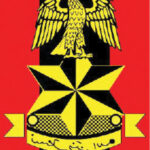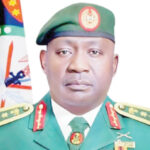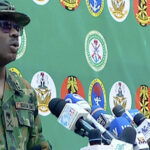Air Marshal Al-Amin Musa Daggash rose from being a cadet in 1963 to the highest rank of Air Marshal in the Nigerian Air Force. He was a commander in virtually all the various sections of the air force before he became the commandant of the Nigerian Defence Academy, Kaduna, and ultimately, the Chief of Defence Staff during the regime of General Abdulsalami Abubakar, between 1998 and 1999. In this interview, he spoke on his career and other issues.
How would you describe your early years?
As a civil servant working for the colonial masters, our father moved from one place to another and we moved with him. He experienced a lot of postings. We started school in Maiduguri, but before we knew it, within one year, he was posted to Zaria and we moved. In another one year or two, he was posted to Katsina. We were moving from place to place until the Oyewole twins, who were my father’s classmates in Oxford, visited him in Zaria and said we (the children) should have been in an organised school environment.
Were you not schooling in Zaria then?
We were schooling, but they were moved by the way they saw us. Remember that schools in the southern part of Nigeria were of different standard from what we had in the North. Finally, they agreed that we should be sent to Abeokuta.
How many of you moved?
Two of us—myself and my late brother, Mishara. We went to Mrs Kuti’s class. It was a primary school owned by the late Funmilayo Ransom-Kuti, Fela Ramsome-Kuti’s mother. We spent three years in the primary school and took the entrance examination to Abeokuta Grammar School and were admitted. We spent another three years in the school before our father decided that schooling there would not inculcate Islamic teaching in us.
- Tenth N/Assembly: Challenges beyond inauguration politics
- Senegal’s continental dominance is not accidental
We tried to read the Quran with some Islamic teachers (mallams) but we couldn’t understand the phonetics and their language, so our father decided that we should move back to Jos, where he was posted to establish the then College of Forestry, near the present day University of Jos.
As a child from Borno, how did you find the Abeokuta environment?
It was a difficult moment owing to the fact that we could not speak Yoruba language and they couldn’t speak Hausa. But as children, we managed to push here and there; and gradually, we started picking the language. I ended up being very lucky to speak Yoruba better than my elder brother. But it was six years of good experience, living peacefully with everybody.
Do you think the exposure somehow influenced your life and career?
Yes. In the school, including the boarding house, there were dos and don’ts. The twins I told you about also stayed in the boarding house; they had their little apartments.
Were they teaching in Mrs Kuti’s school?
They were teaching in Abeokuta Grammar School, having graduated from Oxford.
When you moved to Jos, it was not a very typical northern town; I don’t know how much of the Islamic traditional education you got there?
When we went to Jos, the only school there that our father got for us was Kuru Science Secondary School, near the railway. All the teachers in the school were British, except one. I can’t remember his name now, but he was the assistant craft teacher and a Yoruba man.
Another member of staff, also a Yoruba man, was the bursar, otherwise everybody else was British.
I think our father did his research and found out that that was a good school there, so we went.
To answer your last question, there was no Islamic study in that school. We would go to the hall and they would read some kinds of books. I got some of them; and they were kind of pamphlets and neutral – neither Islamic not Christian – but the Almighty God was mentioned here and there. We would read it for about 10 minutes and disperse to classrooms.
We learnt Arabic during holidays. Really, Plateau and Jos were not what we have now.
What is the difference?
When our father asked his driver to take us to Bukuru, there was no road connecting Lagos Road, so the driver had to carry our box. I and my brother had one common box. We had to walk because we had to avoid the long route. We had to cut across Berom villages; that was where we had a little problem.
There were cactus plants here and there.
Parameters?
That’s right. Each family had their own parameters, so we had to move between the cactus trees and so on to find our way out.
We were heading to Kuru, and suddenly, Mishara (my brother) tapped me, turned and started running back.
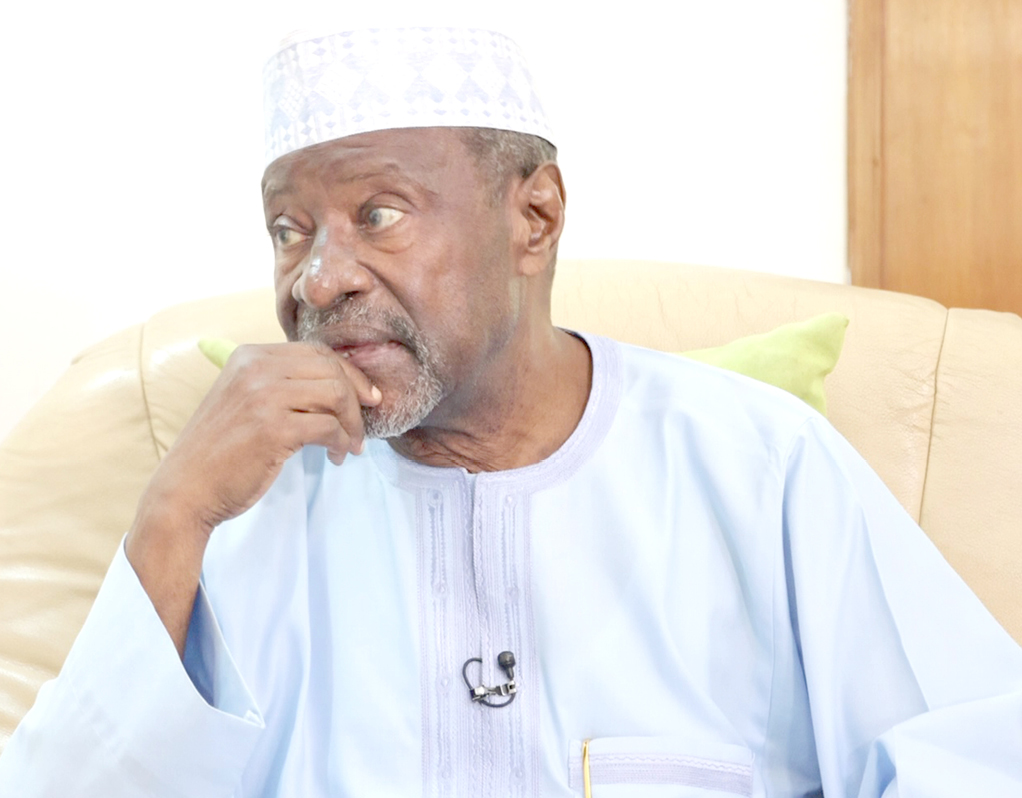
What did he see?
At that time, Berom people were not wearing anything. Their females were using only leafs to cover parts of their bodies and the males only had what they called kororos. They would put one there and tie it.
When it was cold they would have godo because they had to try to cover themselves. Mishara ran and the driver dropped the box and started running after him. He said I should sit down with that box there, promising that they won’t touch me.
He grabbed Bushara, brought him back and held him, saying our father said he should take us to school and these people won’t touch us. He said we should not even look at them. So we continued. We walked and finally got to the school at Kuru.
There, again it was a nightmare for four days. We wondered how somebody could live in that kind of environment. We had never seen that kind of thing, so we were not used to it.
What was the difficulty?
The difficulty was that they were more or less our neighbours as they were not too far away from the school. So you could see them naked. We wondered how we could live in that kind of environment.
What about the teachers?
The teachers were in the school compound. The Berom were across the road.
We were told that the driver had to stay around with us for another one day or two. He had to call and send a message to our father to assure him that we had settled despite difficulty.
Then other schoolmates started arriving from Lowland division – Panshin, Lantang, Shendam. Many of them spoke different languages, but the common languages were Hausa and English.
We settled down gradually. And since the British people were teaching and looking after us, we forget about these other people and concentrated.
Of course the British team was quite good; they looked after our welfare and feed us well. They were good teachers. And everything was free.
From that school you went for training in Kaduna, what attracted you to the air force?
What happened was that during the last year in school, different civil servants and experts, technocrats, armed forces, police, came and briefed students on careers, so the one that attracted me the most was the air force. It was either the air force or navy, but I wasn’t able to make up my mind.
Why?
When I left that school, we went to Kano to start our Higher School Certificate (HSC) programme with my brother at Rumfa College. When we went on holidays to Lagos in 1963, the Germans came and established the Nigerian Air Force. Our father was in Lagos.
In Kaduna?
No; at that time, it was in Lagos. The Ministry of Defence was in Lagos. I was able to read few pamphlets and information in the newspaper.
Our father was a permanent secretary in one of the ministries, but I can’t remember its name. I think it was mines and powers. He was with Maitama Sule (as minister).
I went to him and said I would not go back to Kano. He asked why and I told him that I would like to try and make a career in the air force since it had been established. He asked if I was sure and I said yes. He promised to speak to his friend, Tako Galadima, who was a minister.
The late Ribadu was the minister of defence but Galadima was in charge of the air force. I expected an answer the following day because we were on holidays.
The next day, my daddy came back and said he had spoken to his friend and he said they should encourage northerners as much as possible to join the air force because there were quite a lot of people in the navy and army and they were mostly southerners.
He said the minister advised me to write a letter stating that I wanted to join the air force. So I wrote my application and gave to him and he gave it to his friend. They called us for an interview and aptitude test. We were almost 1,000. After a week or two, the result came out; and of course they selected us according to scores.
My cadet number was 1015, which means that I was the 15th on the list. They selected 120 or 130 in the first batch. That was how I got into the air force.
You held positions in virtually all the commands; is there any particular aspect of the air force you recall with a lot of nostalgia?
Well, I am technically attracted to anything I can use my brain and hands to do. In the aptitude test, they were able to tell you how you would be able to go for air crew or engineering training etc. I was selected for engineering training.
When I went to Germany during the first training, after the military training in Kaduna, the next school we went to was technical. And in Germany in those days you didn’t just become an engineer. There’s what they called grade levels. As a young man, they would teach you technical drawing, craftsmanship and other things.
So you had to pass grade levels 7 and 8 before going into proper engineering training/aircraft maintenance.
That was how I progressed in that line. From there you would go on further training of different aircraft types. Sometimes there were longer courses and sometimes there were shorter ones.
We were also taught logistics management because if you didn’t know how to manage spare parts procurement, distribution, usage and so on, your equipment would not go. Those courses were put together and taught.
I progressed from one step to another, and each grade you passed earned you promotion. Sometimes they were short courses and sometimes longer ones.
That’s how it worked. I did virtually everything and headed everything. I was a director of almost everything in the logistics unit.
I was first of all a director of works for four and half years, as well as an aircraft maintenance engineer. I didn’t like it but it was a challenge. I was also a director of engineering for four years plus. I became director of supply for another two years or something.
During Abdul Bello’s tenure (as Chief of Air Staff) I director of works. At that time, we had two major runways being built in the country for the military in Makurdi and Kainji. These were about 3.67kms length; and they were thick.
It was designed by an old lady, a professor from Switzerland, but it was built by Julius Berger.
So, in that field I really got involved; I even forgot about aircraft. I was more interested in infrastructural development.
You were also a commander of the training school, was it more of flying or engineering?
When I left the headquarters temporarily from logistics, I went to Kaduna. We were in Kaduna briefly, where I was a senior aircraft staff officer at the air training command. I was there for a year. It was headed by the late AVM Natiti. I became the air officer commanding the training command.
The training command caters for everybody, including aircraft pilot training. We have the basic primary flying training in Kaduna.
I and my late friend, Group Captain Magaji, established the present Air Force Institute of Technology in Kaduna, which is now a university. We started with the technical training group, then gradually, it increased.
We trained everybody. We had the technical training group in charge of training all the craftsmen.
What about flying?
That was the basic flying school, but I didn’t fly. I was all through in technical matters.
Remarkably, you spent 20 years when the military was in power, but you were not one of the political officers; why was it so?
It was not my making, but I never longed for it because I noted one or two examples of those who were there and societal ills started crippling into the system.
There were bribery and corruption, nepotism etc, so I was satisfied where I was and it never bothered me.
Were you not jealous that your colleagues were governors, ministers and all that?
Not at all. In some instances, the governors were selected because they came from a particular region. Maybe that was the requirement. Some states got that privilege and some didn’t.
Things kept moving but I never bothered. But I moved from one stage to another until I finally got to the position of Chief of Defence Staff. Finally, I had my retirement in May 1999.
But before that, you were the commandant of the Nigerian Defence Academy (NDA), which was almost like a political posting; how would you describe that?
The posting I enjoyed most was as a commandant of the NDA. That was a brilliant posting and I thank the Almighty God for that, especially because at that time, the post was monopolised by the army. I think it was during my time that the decision to rotate it as it is done in other countries was taken.
I don’t know whether it was my luck or God’s will. I was the deputy commandant for one year and was appointed the commandant.
Were you the first air force officer to hold the position?
Yes; even till today.
Why did you say you enjoyed it?
I enjoyed it because I was working with human beings and dealing with different characters and members of staff from different places, including civilians, lecturers etc. It was very interesting. It was like a small world.
It was beautiful to put things together and get everybody to cooperate, do the right thing and get the best results. That’s what I loved the most.
You served as Chief of Defence Staff in the regime of General Abdulsalami Abubakar before you retired; how did that come about? Was there any kind of negotiation?
I don’t know about negotiation, but I can perhaps admit that it was God’s will. However, I know there was tussle of sorts. An army officer can be very shrewd and crude when it comes to such appointments and posting. It is an everyday thing, which has succeeded in killing a lot of esprit de corps.
The issue of seniority also matters a lot, which our army brothers and friends sometimes don’t follow.
If you got a weak leader up there, he would listen and give it to them. Sometimes he would select a junior officer to hold the position and his senior would be forced to retire.
I never lobbied for any appointment in my life because I trust in God.
I said negotiation because when General Sani Abacha died, there was a kind of tussle among top commanders and generals over who would become what. Was it in that situation that they conceded the position to you?
No. I was the commandant of the NDA when Abacha died.
I took over from the late General Haladu, when Abacha died and he was given a ministerial appointment. I was the deputy commandant; that might answer your question.
The army boys were struggling for that appointment. I was in my office when Major Mustapha, who was the chief security officer to Abacha, called me and said the head of state wanted to speak to me. He took the phone and said I should not mind “these crazy boys” because my posting, which would come out immediately, was done from Abuja.
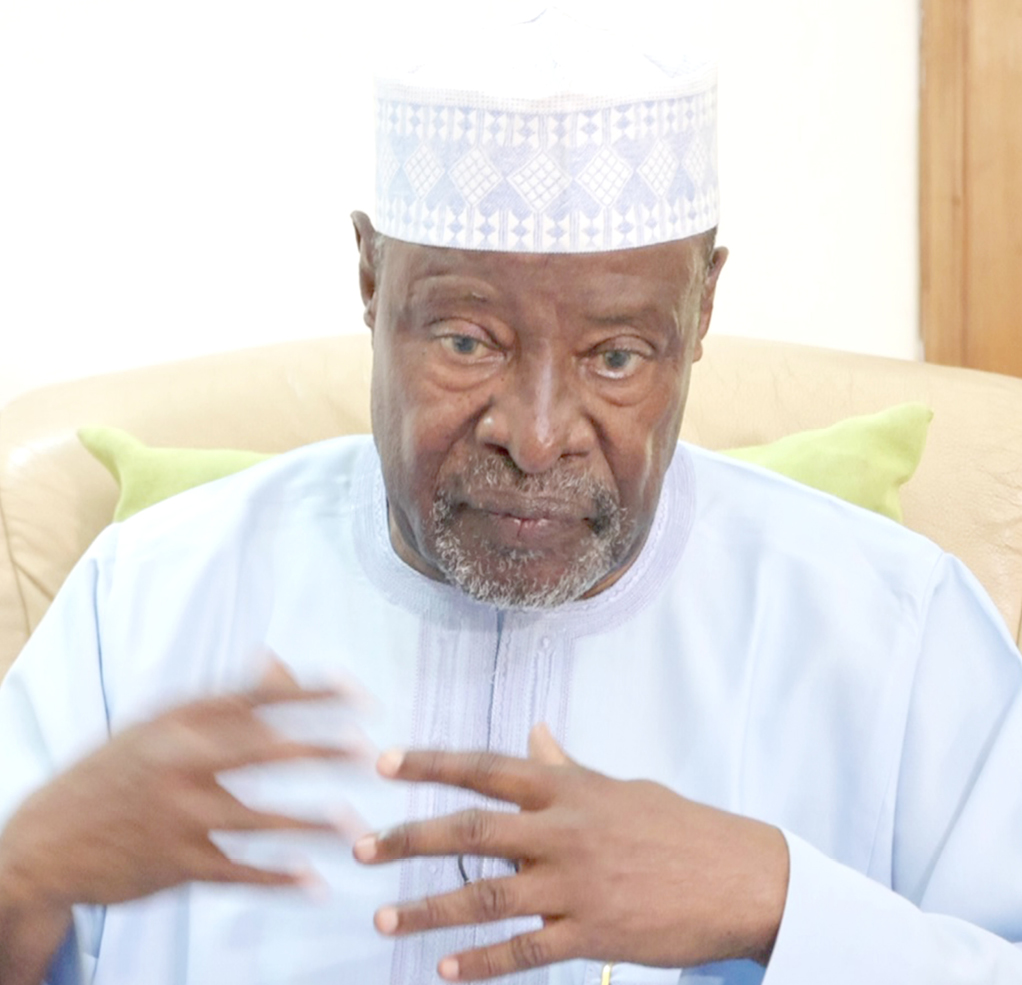
Was it not from the Ministry of Defence?
It was from Military of Defence but a direct instruction from the Villa. That’s how I was appointed.
But when Abacha died, there was a problem.
The lobbying started?
They were not thinking of Abdulsalami or anybody else to become head of state, because Ishaya Bamaiyi wanted it. In the whole military, I was the senior officer, so I told them that we would talk in the Military Council and everybody dispersed. We came back and problem started. The security chap, Mustapha, had his own, likewise Bamaiyi and another one. The place was becoming rowdy.
Would you refer to that as military democracy?
Yes. When they came to my table, I told them not to turn this country upside down as there could only be one head of state.
In the military we have a seniority rule and you cannot break it. The only condition was to ask General Abdulsalami to take over since he was the Chief of Defence Staff, and Diya, now late, was in prison.
By hierarchy he was on the line, so I asked if he wanted to be head of state or we should look for somebody else. I pushed it to him and everybody just kept quiet. He accepted and the matter was closed. He was promoted to the rank of a General instantly and he assumed office the following morning.
We were not used to that kind of ups and downs in the military; it was not part of us, but it crept in due to the lapses of the society.
What kind of man was Abacha?
Well, I wouldn’t say I knew him much, but he was a tough and rigid man. He didn’t play with decisions. It might take him time to take a decision, but once he did that, he would not go back. He might have got his own weaknesses here and there, but militarily, he was good.
Were you surprised at all the corruption allegations levelled against him after his death?
That is a difficult question for me to answer.
You retired since 1999, what have you been doing?
That is a big question. Well, before the Boko Haram crisis, I was going to my farm in the village. I had a cattle ranch, and occasionally, I would go there to see what was going on. Unfortunately, when the crisis worsened, the ranch was vandalised and everything was destroyed. The cattle were stolen and I was forced to stay in Maiduguri to do one or two things, including a little bit of reading and helping people, as well as building small mosques or helping them in their farms occasionally.
The crisis worsened again and my people told me to leave Maiduguri and go to Abuja until when the place would be safe.
Before I left Maiduguri, I was a member of the Borno Elders Forum. We had a series of meetings trying to reorganise and restructure the socio-economic livelihood of the Kanuri and the Shua etc; but unfortunately, we did not succeed the way we wanted it.
When I came to Abuja, the crisis continued to get worse, and one day, I got a phone call from Maitama Sule’s personal assistant, saying he wanted to come and see me. He came and told me that Sule said he should inform me that he wanted to establish the Northern Elders Forum to look after the interest of the region. I told him that I did not have any objection. I said they could call me anytime they were ready.
The Danmasani Kano piloted the affairs of the forum for two years plus. We continued to meet to offer advice to the government and certain institutions. Unfortunately, he never lived longer than three years after the establishment of the forum.
When there was the unification of the Borno and Yobe Elders Forum, again I was invited. Again, we had several meetings here and there. Unfortunately, that also did not offer enough solutions to the problems faced by Borno and Yobe states.
In the Northern Elders Forum, I was dragged along up to the last elections of the Buhari; and I had already seen things beginning to fail. Things were not working the way we expected.
The late Sule thought we would be able to succeed because he held some personal meetings with President Buhari, but, of course we never got any success out of that as well.
Is it that you never met with the president as a group?
Meetings took place, but we thought that being a new group, we should allow the Danmasani Kano to have discussions with him, but a number of times we would sit and expect to hear good results and information on what we suggested, but it never happened.
When Sule died, I suggested that the leadership of the group be taken over by Professor Ango Abdullahi. He too piloted the affairs of forum for some time, but there were no results.
The whole issue dwindled and I told them that I won’t be part of the meeting.
But would you say that your experiences in these groups were worth it?
Yes.
Elders are supposed to guide the society, why should they fail in Borno, where insurgency is going on? What do you think is responsible for that?
A community or society made up of the same tribe will never fail, but where you have a community or society made up of different tribes, you will have problems because a good number of the people will be selfish. There will be a lot of greed as a good number of them will rather monopolise whatever they think is the best beef coming out of that cattle. These are some of the problems we have been having with the Borno Elders Forum.
So they could not manage their diversity in Borno?
That is part of the problem. You cannot get them to work peacefully and achieve results.
I pulled out and told them that any organisation built on selfishness and tribal lines does not work, so I could not waste my time there.
The Northern Elders Forum has kind of become a very small group that is seen as being very antagonistic to President Buhari; at least that is the impression you get from the people in government. What is the problem with that group?
The group has not been antagonistic to this government. I told you that the forum was created just before Buhari was elected. We took quite a lot of strides to make sure that power did not go down South. That was why the forum went to Washington two times and met with the State Department on several issues.
So you lobbied for Buhari to become president?
They promised to help. After about 9 months, they went back and met with the State Department. Again, they promised to help, saying they knew our socio-economic situation and history and had so much data on Nigeria.
So they said if we could get our wealth back, it was enough to tackle all our debts and socio-economic problems; and that would only happen if we had good leaders. Buhari was chosen on the basis that he worked in different places and never stole money or did anything evil. So it was believed that he would use the country’s wealth properly.
Are you disappointed that Buhari didn’t use this connection and information properly?
If we can get 85 per cent of our money back, Nigeria would be a happy country.
So none of that has happened?
Nothing.
Do you have hope that another government would do better?
There is no hope.
Have you given up?
I have given up. If anything would happen, it would be by God’s ruling, not through the character of politicians. And that is a big minus for the country. It means that the economy will keep on tumbling; and only God knows where it will stop.
How do you spend your days?
From day to day, if I come out of this door every morning, I might have thought of something. I am very creative. And I like a lot of maintenance. I don’t like seeing things being spoilt.
Can that be attributed to the engineering ability in you?
If you look at my skyline there, you could see that I am pruning all the trees because if there is a very strong wind, they would break and destroy all the roofs.
And few days ago when there was a heavy wind and the rain was very strong, I told myself that if I had not done that, I would have incurred some losses. So I spend my day through a little bit of creativity and thinking.
Do you do any exercise to keep fit?
I do some walk. Of course I try to pray in the morning and do my magrib and isha, so I walk to the mosque and come back. I walk at least four kilometres daily and that is quite good for me.
Are you on any diet?
I am supposed to be on diet because they said I was slightly diabetic. But dietitians have worked out some kind of feeding for me; not very serious, but I try to eat just as little as I can; I don’t overfeed myself.
Do you eat everything?
No. I just appropriate, and I find it easy. Life is continues.
How is family life for you?
Alhamdulillah, my five children are all grown up and married. I have only three little ones now and I am looking after very closely.
You retired as an Air Marshal; is military retirement comfortable?
It is fairly good. However, there is a lot of financial management.
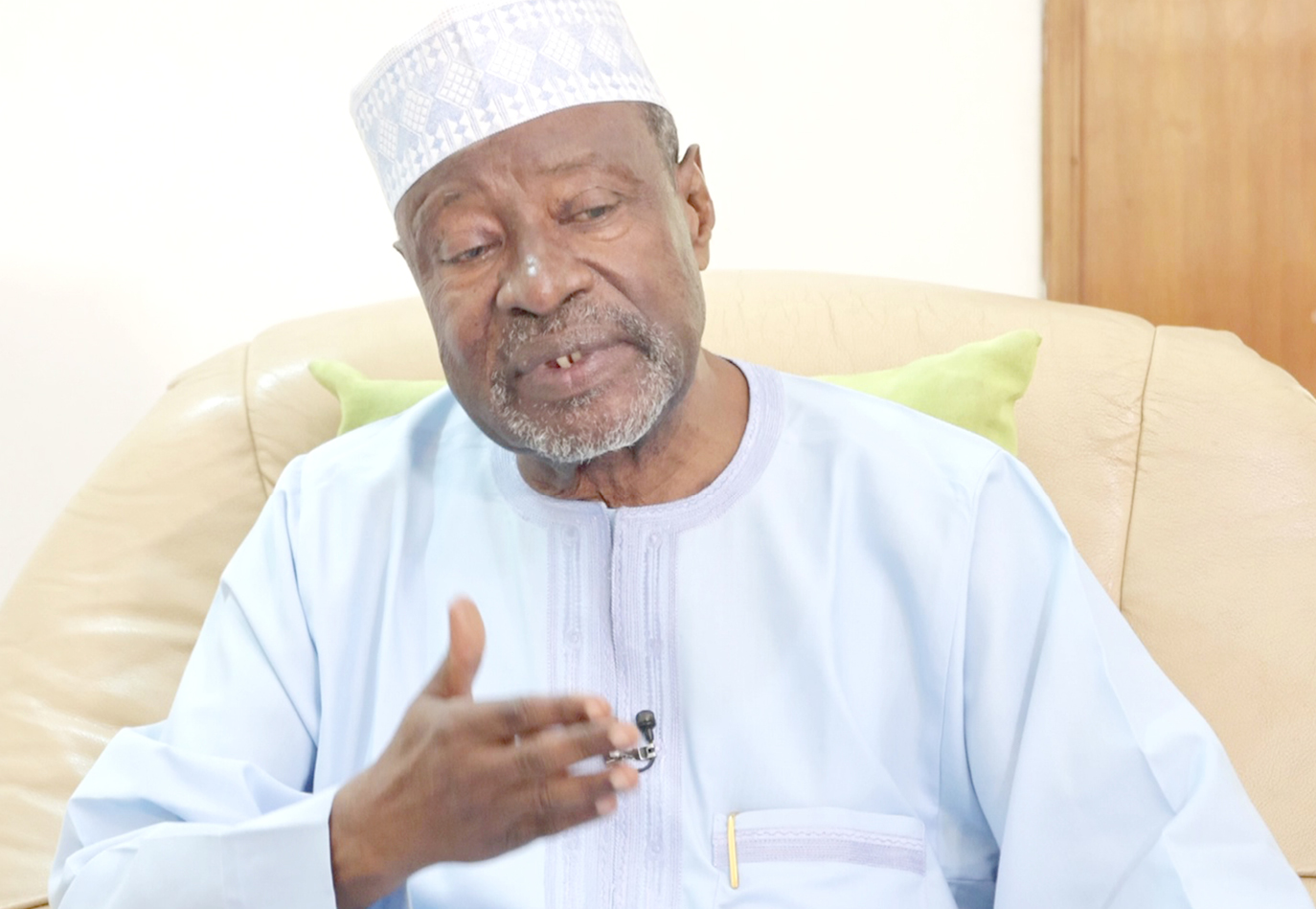
 Join Daily Trust WhatsApp Community For Quick Access To News and Happenings Around You.
Join Daily Trust WhatsApp Community For Quick Access To News and Happenings Around You.